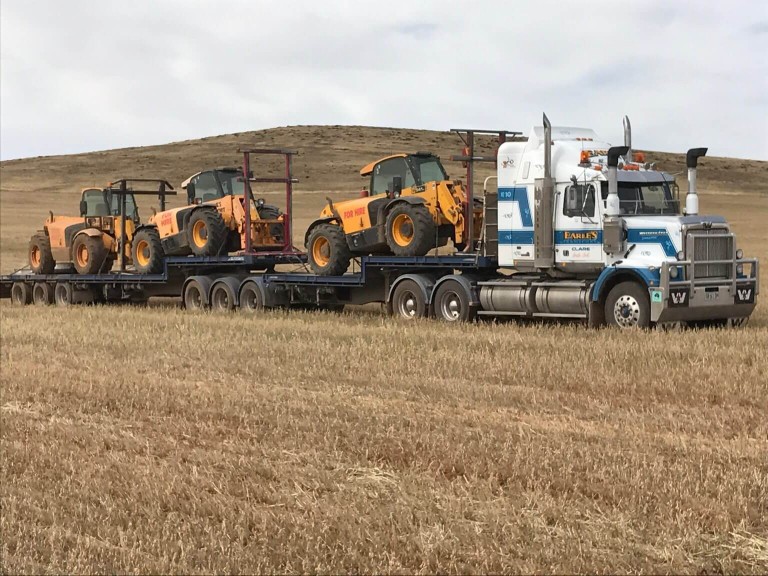What is the Importance of The Right Livestock Carriers in Transportation?
Livestock farming is a cornerstone of agricultural economies around the world. In many regions, it provides a substantial portion of the income for farmers and contributes to food security.
Many people are involved in this business and are required to acquire livestock from one farm to another farm.
However, those involved in transportation often forget about one of the crucial aspects: The selection of livestock carriers.

Why the Right Livestock Carrier Matters
Selecting the appropriate livestock carrier is more than a logistical decision; it directly impacts the welfare of the animals being transported. Livestock carriers are designed to accommodate different types of animals, each with unique needs. The type of carrier used can affect the comfort, safety, and overall health of the animals during transit.
Here’s why the choice of livestock carrier is crucial:
1. Animal Welfare:
The primary consideration when choosing a livestock carrier is the comfort and safety of the animals. A well-designed carrier provides adequate ventilation, space, and flooring to prevent injury and stress. Animals transported in carriers that are too small or poorly ventilated can suffer from heat stress, overcrowding, or injuries.
Furthermore, stress during transportation can lead to health issues such as reduced immunity and weight loss. Proper carriers help minimise these stresses by offering a smooth ride, preventing excessive jostling, and ensuring a stable environment.
2. Regulatory Compliance:
Many countries have specific regulations regarding the transportation of livestock. These regulations often dictate the standards for carrier design, including space requirements, ventilation, and sanitation. Choosing a carrier that meets or exceeds these standards ensures compliance with legal requirements and avoids potential fines or penalties.
Additionally, adhering to animal welfare standards is not just about compliance but also ethical responsibility. Proper carriers help meet these standards and improve the overall reputation of livestock businesses.
3. Efficiency in Transportation:
Different types of livestock require different amounts of space. For example, cattle need more room compared to poultry. A carrier designed to accommodate specific types of livestock helps in maximising space utilisation, thereby optimising transportation efficiency.
Efficiently designed carriers can contribute to faster loading and unloading processes, reducing the overall transit time. This is particularly important in maintaining the health and well-being of the animals.
4. Economic Considerations:
Proper carriers reduce the risk of injury and illness, which can translate into fewer veterinary bills and less loss in productivity.
Types of Livestock Carriers
Understanding the different types of livestock carriers available can help in making an informed choice:
1. Enclosed Trailers:
Enclosed trailers provide protection from the elements and are ideal for transporting animals that require a controlled environment, such as poultry or small livestock. They come equipped with ventilation systems and temperature control options.
2. Specialised Carriers:
For specific types of livestock or unique transportation needs, specialised carriers may be required. These include carriers with adjustable compartments for different animal sizes or those designed for unique conditions such as extreme temperatures.
3. Flatbed Trailers:
These are versatile and commonly used for transporting larger livestock such as cattle and horses. They offer ample space and can be customised with features such as non-slip flooring and high side rails to ensure the safety and comfort of the animals.
Apart from the carrier, one more thing needs to be taken care of for the well-being of livestock: The use of the right tools!
Though those in this business for years have expert teams who take care of everything, the problem comes with DIY enthusiasts who prefer to do their work themselves but sometimes are not equipped with the right resources, and one such resource is Telehandler.
It is an essential tool that helps in loading and unloading, so before anyone starts transport, they should check if they have this tool. If they don’t have one, we advise them to search for a Telehandler for Hire.

Summary:
The task of livestock transportation should not be taken lightly. It involves the lives of several animals that can’t speak to express their discomfort.
That is why the individual conducting this transportation must take care of their comfort and choose the livestock carriers.
However, if you are new in this industry or don’t have required carriers, don’t adjust to whatever you have; visit a nearby provider and hire the ideal one so your livestock can enjoy the transit instead of suffocating.
